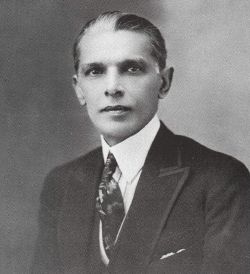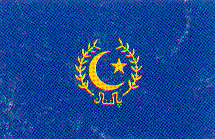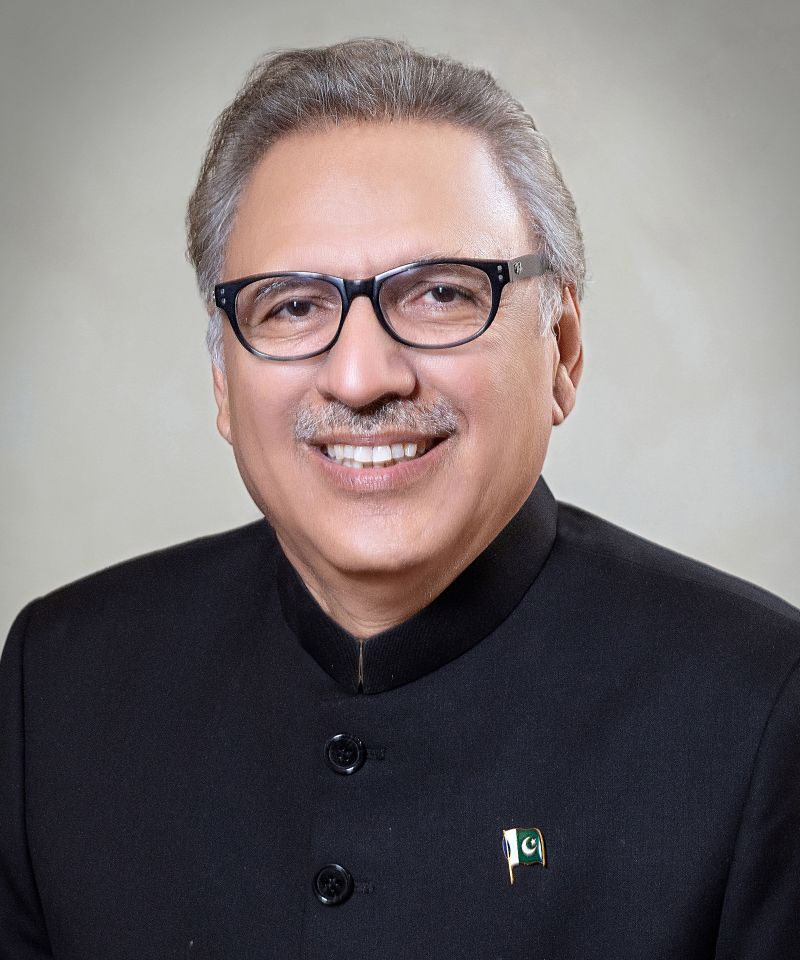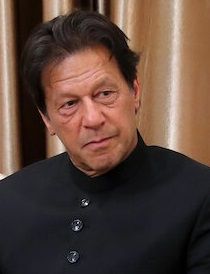


Muhammad Ali Jinnah (Founder of Pakistan)




Left to Right: - Arif Alvi (The President) - Imran Khan (The Prime Minister)
The official name is "The Islamic Republic of Pakistan". A country with 200 million people (97% Muslims) is located in South Asia and borders India, Iran, Afghanistan, China and the Arabian Sea. Population wise it is the sixth most populous country in the world, while in the community of Islamic countries it ranks second after Indonesia. An important member of the OIC, SAARC and ECO. Pakistan is also one of the few declared nuclear weapons states.
Pakistan is a federal republic with a semi-presidential
system, with four autonomous Provinces – Balochistan, Sindh, Punjab, and Khyber
Pakhtunkhwa
(former the NWFP or the North West Frontier Province) in addition to the Federally Administered Tribal
Areas and the Federal Capital Territory. Pakistan also exercises de facto
control over the state of Azad Kashmir (Azad meaning Free in Urdu) and the
Northern Areas.
The bicameral federal legislature comprises the 100-member Senate (with seats
equally distributed among the provinces and the FATA and the capital) and the
342-member National Assembly (both chambers have reserved seats for women and
religious minorities). Senators are elected for six-year terms (with half
retiring every three years), whilst members of the National Assembly are elected
for five-year terms. The President of Pakistan is the Head of State and
Commander in Chief of the Armed Forces, and is elected for a five-year term by
the Electoral College of Pakistan – comprising the Senate, the National
Assembly, and the four Provincial Assemblies. The President’s appointment and
term are constitutionally independent of the Prime Minister’s term.
The Prime Minister of Pakistan is usually the leader of the largest party in the National Assembly, and is assisted by a cabinet of ministers drawn from both chambers of the federal legislature.
The present government under Imran Khan's Pakistan
Tehreek-e-Insaf (PTI or the Pakistan Justice Party) won 116 of the 272 seats in
the elections held in 2018, and joined with several smaller parties to form a
majority in parliament..
Each province has a Provincial Assembly elected for five year terms through
competitive multi-party elections, and which in turn elects a Chief Minister –
the executive head of the province. The Chief Minister nominates the governor
and the Provincial Assembly ratifies the nominee for a five year term.
Related Sites: | GOP Official Site | Country Study | Infoplease - Pakistan | BBC's Pakistan | The National Assembly |
|
| HOME PAGE | Copyright©JalalsPages - 2005 This page was created on 1 June 2019 |